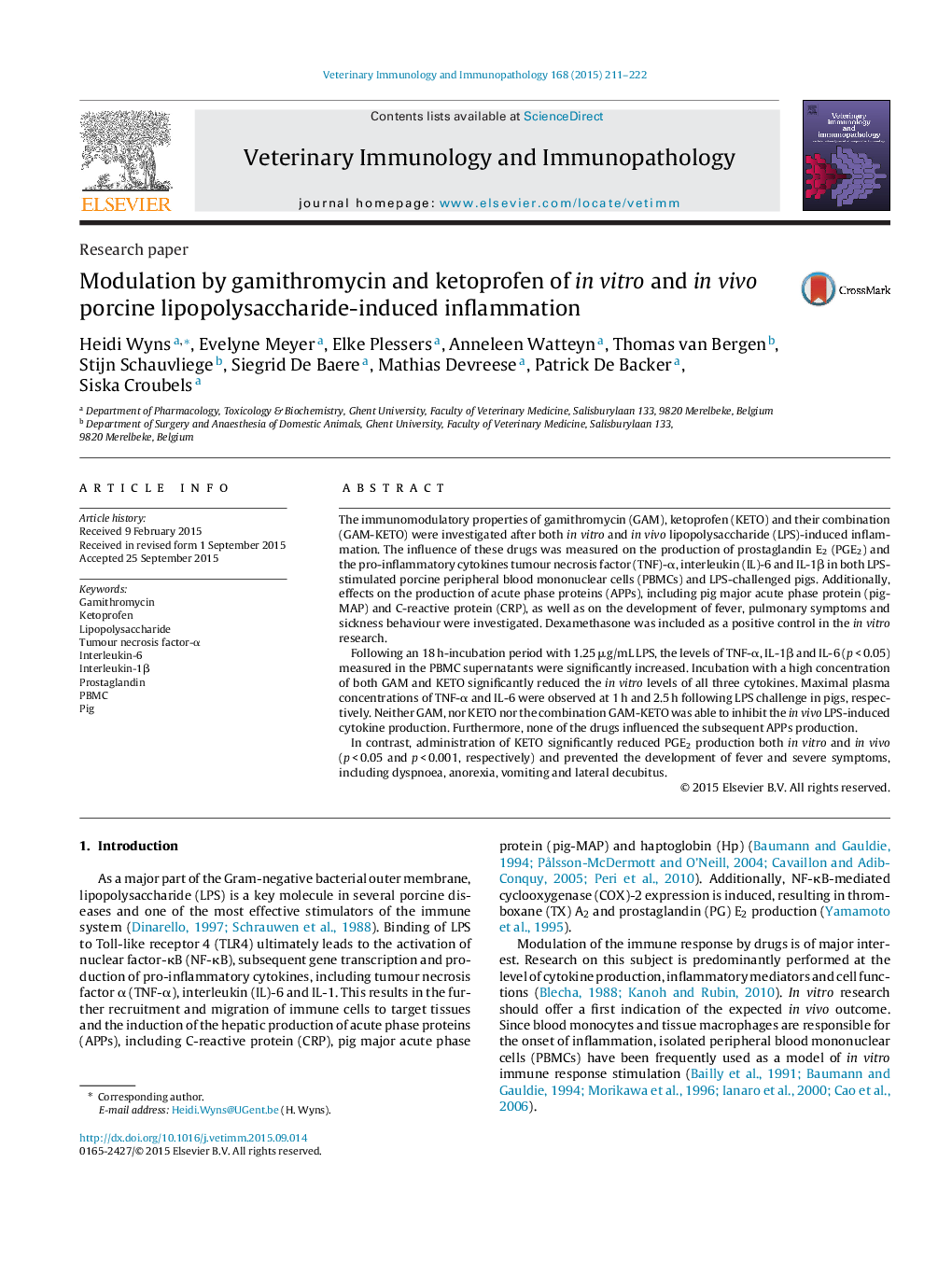| Article ID | Journal | Published Year | Pages | File Type |
|---|---|---|---|---|
| 5796667 | Veterinary Immunology and Immunopathology | 2015 | 12 Pages |
The immunomodulatory properties of gamithromycin (GAM), ketoprofen (KETO) and their combination (GAM-KETO) were investigated after both in vitro and in vivo lipopolysaccharide (LPS)-induced inflammation. The influence of these drugs was measured on the production of prostaglandin E2 (PGE2) and the pro-inflammatory cytokines tumour necrosis factor (TNF)-α, interleukin (IL)-6 and IL-1β in both LPS-stimulated porcine peripheral blood mononuclear cells (PBMCs) and LPS-challenged pigs. Additionally, effects on the production of acute phase proteins (APPs), including pig major acute phase protein (pig-MAP) and C-reactive protein (CRP), as well as on the development of fever, pulmonary symptoms and sickness behaviour were investigated. Dexamethasone was included as a positive control in the in vitro research.Following an 18 h-incubation period with 1.25 μg/mL LPS, the levels of TNF-α, IL-1β and IL-6 (p < 0.05) measured in the PBMC supernatants were significantly increased. Incubation with a high concentration of both GAM and KETO significantly reduced the in vitro levels of all three cytokines. Maximal plasma concentrations of TNF-α and IL-6 were observed at 1 h and 2.5 h following LPS challenge in pigs, respectively. Neither GAM, nor KETO nor the combination GAM-KETO was able to inhibit the in vivo LPS-induced cytokine production. Furthermore, none of the drugs influenced the subsequent APPs production.In contrast, administration of KETO significantly reduced PGE2 production both in vitro and in vivo (p < 0.05 and p < 0.001, respectively) and prevented the development of fever and severe symptoms, including dyspnoea, anorexia, vomiting and lateral decubitus.
